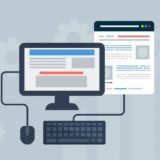Drift App: Revolutionizing the Way Businesses Operate

Introduction:
The ever-evolving digital era has paved the way for several advancements in technology, revolutionizing the way businesses operate. One such innovation that has gained immense popularity and transformed the business landscape is the “drift app.” Designed to streamline processes, enhance efficiency, and optimize productivity, the drift app has become an indispensable tool for businesses across various industries. In this article, we will delve into the intricacies of the drift app, providing a comprehensive understanding for tech enthusiasts and anyone interested in this field.
Understanding the Drift App:

The drift app is a powerful software application that enables businesses to optimize their operations by automating and simplifying various tasks. It serves as a centralized platform to manage multiple aspects of business operations, such as customer support, sales, marketing, and project management. By leveraging cutting-edge technology, the drift app allows businesses to seamlessly integrate different functionalities, resulting in enhanced collaboration, streamlined workflows, and improved customer experiences.
Historical Evolution of the Drift App:
The concept of the drift app originated from the growing need for businesses to cope with the complexities of the modern digital landscape. Over time, it has evolved and undergone significant transformations to meet the ever-increasing demands of businesses. Let’s take a closer look at the historical development of the drift app:
1. Early Beginnings:
The advent of web-based applications paved the way for the emergence of the first-generation drift apps. These early drift apps focused primarily on customer support and communication, offering live chat functionalities and real-time assistance to website visitors. Although limited in scope, these early apps laid the foundation for future innovations.
2. Expansion of Functionality:
As businesses recognized the immense potential of the drift app, developers began expanding its functionalities. The second generation of drift apps introduced features such as lead generation, email automation, and customer relationship management (CRM). This expansion enabled businesses to manage their customer interactions more effectively, enhancing their marketing and sales efforts.
3. Integration Capabilities:
With the increasing demand for seamless integration across multiple business systems, the drift app underwent significant improvements. This led to the development of third-generation drift apps, capable of integrating with other software applications, such as project management tools, analytics platforms, and e-commerce systems. This integration allowed businesses to centralize their operations, enabling a more holistic approach to management.
4. Artificial Intelligence and Machine Learning:
The latest advancements in AI and machine learning have revolutionized the drift app landscape. Fourth-generation drift apps now leverage these technologies to automate repetitive tasks, analyze data, and offer personalized interactions with customers. Through natural language processing and sentiment analysis, these apps can provide intelligent responses, enhancing customer satisfaction and driving sales.
The Benefits of Using a Drift App:
The drift app offers numerous advantages to businesses, making it an essential tool in today’s digital landscape. Here are some key benefits:
1. Enhanced Efficiency:
By automating various tasks and streamlining workflows, the drift app significantly improves operational efficiency. It eliminates the need for manual data entry, reduces human errors, and enables teams to focus on more strategic initiatives.
2. Improved Customer Experiences:
The drift app facilitates personalized interactions with customers, providing real-time assistance and resolving queries promptly. With features like chatbots, knowledge bases, and automated responses, businesses can deliver exceptional customer experiences, fostering loyalty and satisfaction.
3. Centralized Operations:
With its integration capabilities, the drift app allows businesses to centralize their operations, eliminating the need for multiple software applications. This centralization leads to increased collaboration, improved data management, and better decision-making.
4. Data-Driven Insights:
The drift app collects and analyzes vast amounts of data, offering businesses valuable insights into customer behavior, preferences, and trends. These insights empower businesses to make data-driven decisions, optimize strategies, and boost performance.
5. Scalability and Flexibility:
The drift app is designed to scale with the growth of businesses, accommodating evolving needs and requirements. It offers flexibility through customizable features and integrations, allowing businesses to tailor the app according to their specific workflows and processes.
Conclusion:
The drift app has revolutionized the way businesses operate, offering a comprehensive solution to streamline operations, boost productivity, and enhance customer experiences. From its early beginnings to the recent advancements in AI and machine learning, the evolution of the drift app has been remarkable. With its numerous benefits and capabilities, this app has become a game-changer for businesses across various industries. By leveraging the power of the drift app, businesses can stay ahead of the competition, drive growth, and achieve sustainable success in the digital era.

















